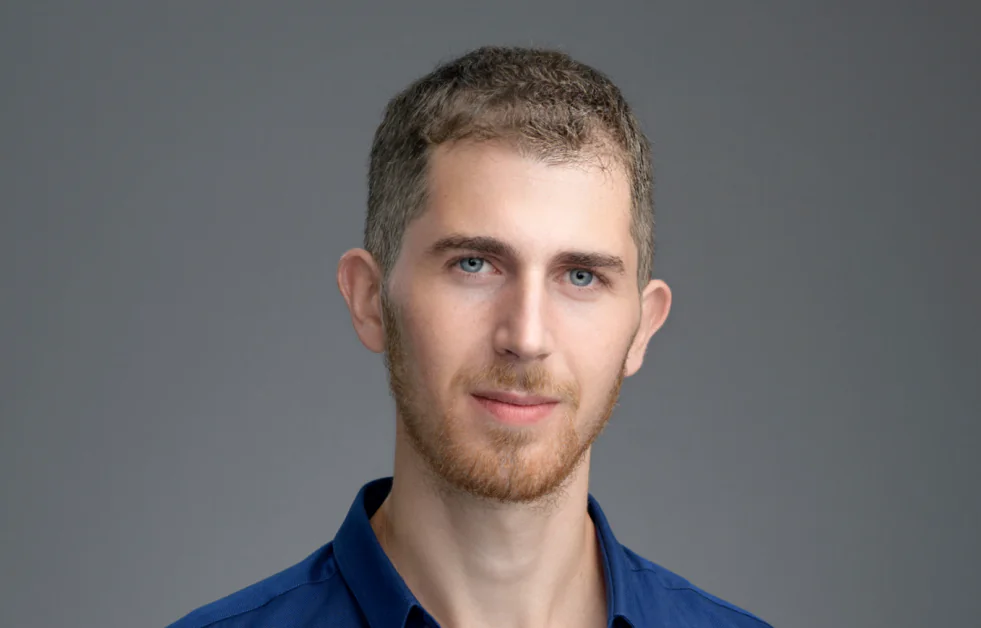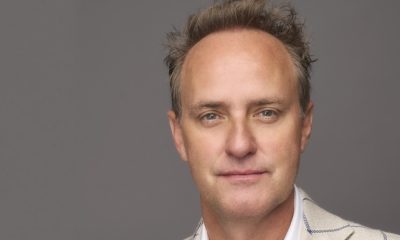Interviews
Nir Minerbi, CEO and Co-founder of Classiq – Interview Series

Nir Minerbi is a co-founder and the CEO of Classiq. He is highly experienced in leading groundbreaking, multi-national technological projects, from idea to deployment. Nir is a Talpiot alumnus and a master’s graduate in physics, as well as electrical and electronics engineering (M.Sc.).
Classiq Technologies, the leading quantum software company, provides a high-level quantum development platform (IDE, compiler and OS) that automates quantum programming, allowing enterprises and researchers to build sophisticated quantum applications without requiring deep quantum expertise or low-level coding. The Classiq platform leverages proprietary algorithmic quantum circuit compilation technology to quickly synthesize quantum circuits with millions of gates enabling sophisticated quantum programs that scale effortlessly, run on any quantum computer and reduce computational costs.
You co-founded Classiq in 2019 and before that worked at KayHut, a fast-growing cyber company known for innovative security solutions. How did these early career experiences prepare you for leading a quantum software company?
At KayHut, we were constantly dealing with deep technical challenges that had real-world impact. That experience shaped how I think about scaling complex technologies. I saw how innovation stalls when powerful tools are locked behind low-level interfaces. In quantum computing, that same challenge exists today. We built Classiq to close that gap, to help organizations unlock quantum’s potential without needing to become experts in quantum circuit design.
What motivated you to start Classiq, and what gap in the quantum computing ecosystem were you aiming to solve at the time?
When we started Classiq, it was clear that while hardware was advancing, the software tools hadn’t kept pace. Most quantum programming was happening at the gate level, which made building anything complex extremely difficult. We wanted to change that. Our goal was to make quantum development scalable and future-ready by introducing high-level modeling, automation and abstraction into the software stack.
Hardware advances often dominate the headlines in quantum computing, but Classiq emphasizes the software abstraction layer. Why do you believe software is the key to unlocking practical quantum applications?
Software is the layer that defines how people interact with quantum computers. If it stays low level, only a handful of experts can build meaningful applications. What we’re doing at Classiq is raising that abstraction. Developers describe what they want to compute, and our platform figures out how to implement it optimally on any supported hardware. That shift is critical if we want quantum to scale beyond the lab.
How does Classiq’s platform change the way developers and enterprises approach quantum algorithm design compared to traditional methods?
Traditionally, quantum developers had to manually write out quantum circuits gate by gate. They had to be both physicists and computer scientists. It’s slow, hard to maintain, and not portable across different hardware. With Classiq, you model the problem at a higher level using our Qmod language. Then our synthesis engine compiles an optimized circuit that meets your constraints, like minimizing qubits or reducing execution time, without the need for manual rewrites. It’s a huge productivity gain and makes scaling and benchmarking easy.
Quantum AI is becoming a major point of discussion. What are the most realistic near-term applications where quantum software could accelerate AI breakthroughs?
We’re most optimistic about specific subroutines in AI that involve heavy linear algebra or sampling, like matrix inversion or kernel methods. These aren’t full end-to-end quantum AI models, but they could become important components in hybrid quantum-classical pipelines. That’s where quantum can start to show impact in the near term.
Beyond AI, which industries do you believe will be the earliest adopters of quantum-first approaches over the next five years?
We’re already seeing strong interest from sectors like finance, pharma, manufacturing and logistics, industries where optimization and simulation challenges are especially complex. For example, portfolio optimization, molecule modeling and supply chain scheduling are all areas where quantum can help find better answers faster. These are also industries that understand the value of getting a head start.
Classiq recently raised over $110 million, with SoftBank joining as a strategic investor. What does this funding allow you to do that wasn’t possible before?
This round gives us the ability to scale our team, invest more deeply in R&D, and accelerate our go-to-market motions. It also lets us expand our integrations with leading hardware providers and cloud platforms. Ultimately, it means we can help more customers build real quantum applications sooner and do it with the confidence that they’re building on a future-proof platform.
Many people still think of quantum computing as “future tech.” What would you say to skeptics who believe meaningful applications are still decades away?
Quantum computing is already being explored by serious companies for serious problems. The idea that it’s decades away misses what’s happening in practice. Are we at full-scale utility yet? No. But we’re already building useful components and workflows that will scale as the hardware matures. It’s not a leap of faith, it’s a matter of preparation and timing.
If we were to revisit this conversation in 2028, what do you think will have surprised the industry most about the role of quantum software?
I think people will be surprised at how software became key to quantum progress. When you look back, you’ll see that high-level modeling, abstraction and automation were the turning points. The biggest breakthroughs won’t just be hardware milestones, they’ll come from developers building applications that wouldn’t have been possible without better tools.
You’ve described Classiq’s mission as empowering developers to create world-changing algorithms. What does that phrase mean to you personally?
For me, it’s about accessibility and impact. We want developers to be able to focus on solving real problems, not on translating their ideas into low-level gate logic. That’s how we get more people involved, more ideas tested, and ultimately more breakthroughs delivered.
Looking long term, what is your ultimate vision for how quantum software will change the world?
The long-term vision is that quantum software becomes as foundational as compilers and operating systems are for classical computing. It should empower innovation, not slow it down. If we do our job right, quantum programming will feel natural, productive and rewarding, and it will enable advances in science, security and sustainability that were previously out of reach.
Thank you or the great interview, readers who wish to learn more should follow Classiq on LinkedIn, X or YouTube, visit the Slack community, GitHub repository or visit www.classiq.io to learn more.












